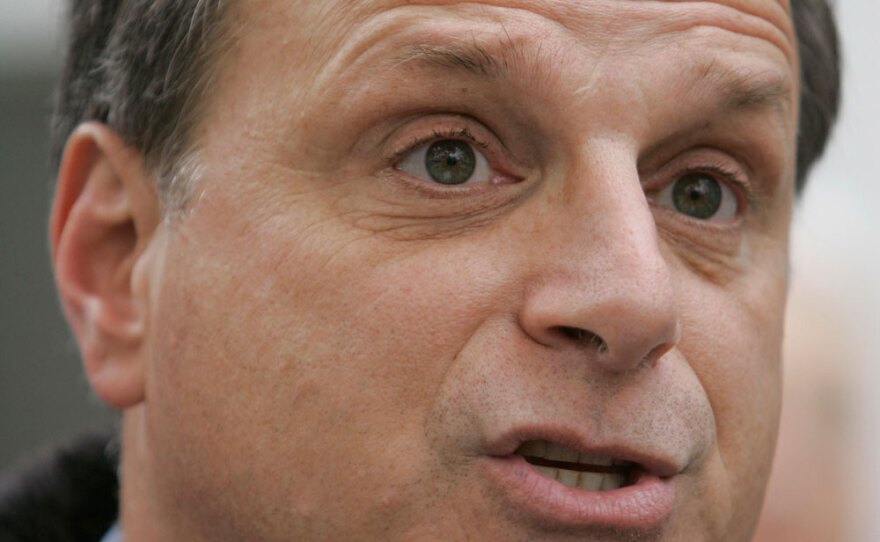On the day his resignation from the House of Representatives became official, Democrat Eric Massa leveled new charges at his party, saying he was forced out because of his opposition to the health care bill. Massa previously had said an ethics inquiry was the reason for his resignation.
Massa, a one-term congressman from western New York, was the subject of an ethics inquiry for allegedly harassing a male staffer. A Naval Academy graduate, Massa has described himself as being gruff and often profane as a naval officer. When he announced he was stepping down last week, he acknowledged that his use of salty language might have made the staffer uncomfortable.
His departure should spare Democrats an ongoing ethics investigation in this election year, but Massa also claims that his "no" vote on health care was part of the push to get him out the door.
On his weekly radio show Sunday, he said he and some staffers were drinking heavily at a wedding reception on New Year's Eve, when a staff member suggested he should be "chasing after" the bridesmaids.
"And his points were clear and his words were far more colorful than that," Massa said. "And I grabbed the staff member sitting next to me and said, 'Well, what I really ought to be doing is frakking you,' and then tousled the guy's hair and left."
Massa apologized on air for the incident, as he had before.
But then he leveled a new charge: Powerful Democrats had used the ethics case to oust him from Congress.
"This administration and this House leadership have said, quote unquote, they will stop at nothing to pass this health care bill," Massa said. "And now they've gotten rid of me and it'll pass. You connect the dots."
Before the broadcast, Massa's departure from the House was framed by two competing stories: the ethics case and his statement that his cancer might have come back. (He was diagnosed with non-Hodgkin's lymphoma in 1996.)
But on Sunday's broadcast, Massa wasn't talking so much about his health. He was talking about the health care legislation.
He had been one of 39 House Democrats who opposed it. Now, he said, it was his vote, and his vote alone, that could tip the outcome in the House. And it was his vote, he said, that triggered a vendetta against him.
"I was set up for this from the very, very beginning," Massa said. "If you think that somehow they didn't come after me to get rid of me because my vote is the deciding vote in the health care bill, then ladies and gentlemen, you live today in a world that is so innocent as to not to understand what is going on in Washington, D.C."
But Massa's math doesn't add up.
"Obviously every vote's important, but there's no one key vote," said Richard Kirsch, head of a coalition called Health Care for America Now.
Kirsch points out that votes are in play from a few big blocs of Democratic lawmakers: those from conservative districts; anti-abortion lawmakers nervous that the bill isn't tough enough on their issue; and progressives who worry it might not reach broadly enough on theirs.
"The fact is, until there is a final bill, members aren't making commitments to what they're going to do," Kirsch said.
Massa's resignation took effect at 5 p.m. Monday. But just in case you haven't heard enough from him, he's booked on Glenn Beck's Fox News show Tuesday. Beck says Massa will get the whole hour.
Copyright 2022 NPR. To see more, visit https://www.npr.org. 9(MDAzMjM2NDYzMDEyMzc1Njk5NjAxNzY3OQ001))







